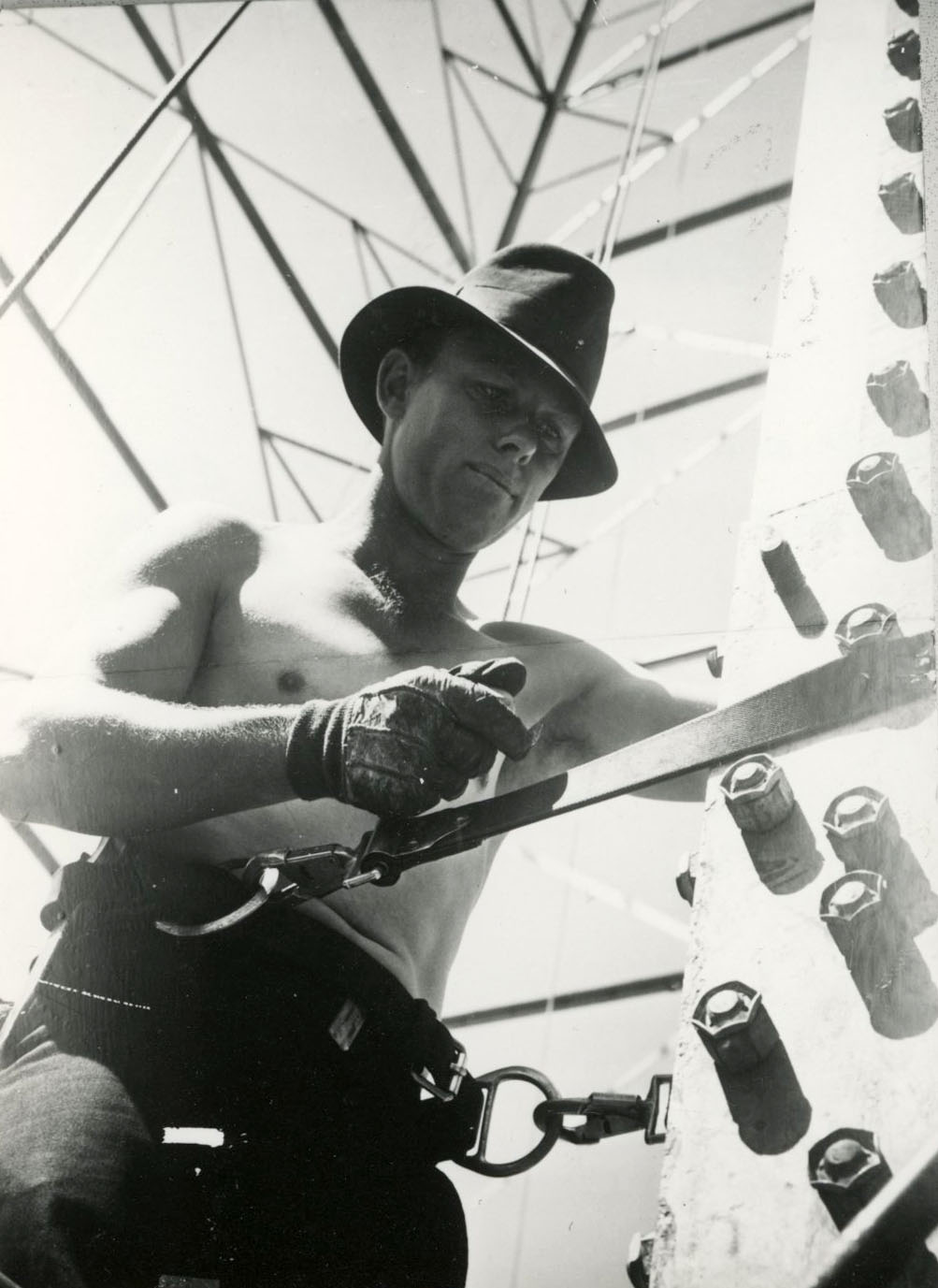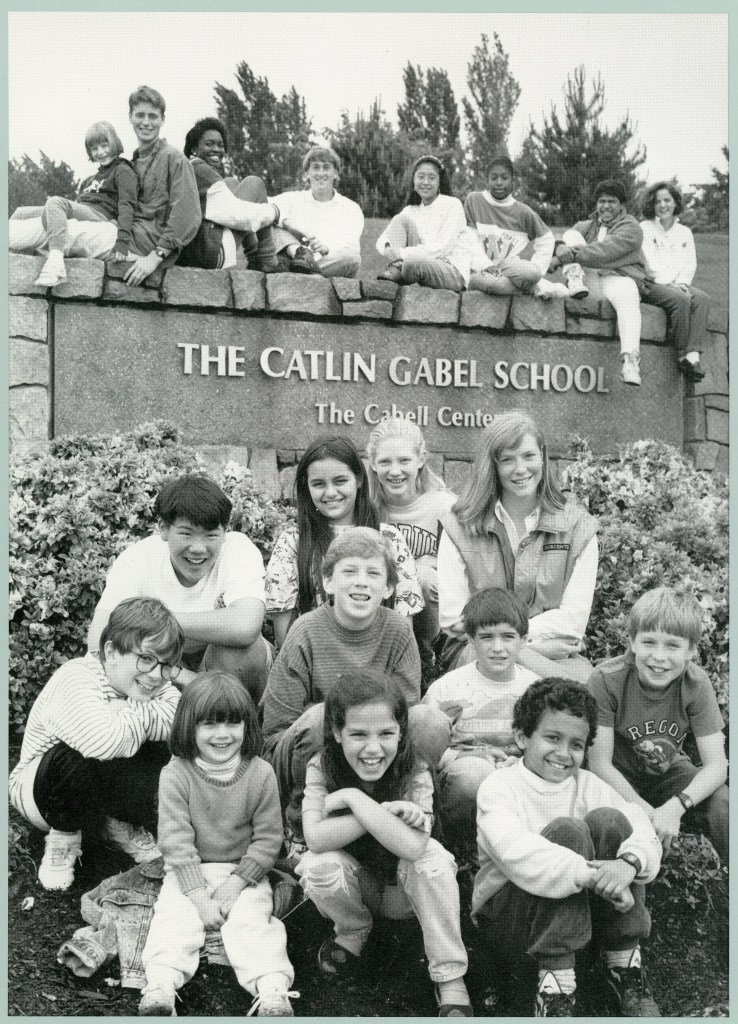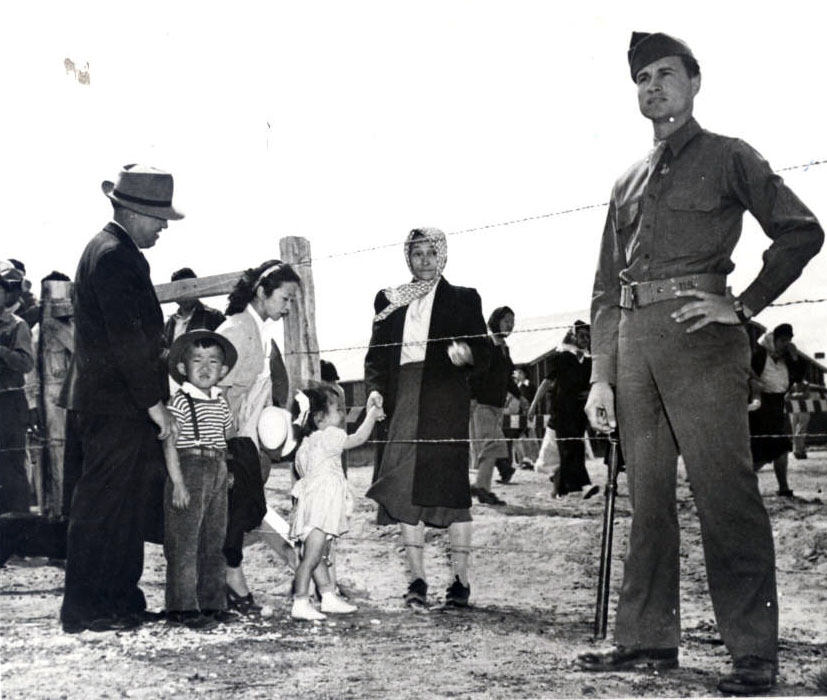Allan Hart was a Portland attorney who was a leading specialist in energy law, particularly electrical power. As an early general counsel for the Bonneville Power Administration, he was influential in developing its policies and procedures. He also was known for his commitment to civil liberties and public service and was among the founding members of the ACLU of Oregon.
Charles Allan Hart Jr., known as Allan, was born in St. Paul, Minnesota, on October 7, 1909. His family relocated in 1911 when his father, Charles Allan Hart Sr., became the lawyer for the Northern Pacific Railroad in Portland. Allan, whose early education was in the Portland Public Schools, graduated from the Moran School for Boys on Bainbridge Island, Washington, in 1927. After earning a B.A. in English from Stanford University in 1931, he enrolled in Yale Law School, where he took courses from future Supreme Court Justice William O. Douglas and served on the editorial board of the Yale Law Journal with future Supreme Court Justice Abe Fortas.
Upon receiving his law degree in 1934, Hart joined the Yale Law School faculty for a year as an instructor. To gain experience in the practice of law, he returned to Portland and joined his father’s firm as an associate. Frustrated at the lack of opportunities for courtroom experience in that position, he left after a year to become an assistant U.S. Attorney, a position he held for two years. He moved to Washington, D.C., in June 1938 to work in the antitrust division of the Department of Justice.
Hart returned to Portland in 1939 to work as associate general counsel and then general counsel for the newly formed Bonneville Power Administration (BPA), where he played an important role in the creation of BPA’s complex system of selling and sharing power. During his tenure, BPA developed distribution systems to bring power to public utilities districts—the agency’s preferential customers as identified in the act establishing BPA. The agency also attracted the aluminum industry to the Northwest to take advantage of the large generating capacity of the dams, and it was able to sell power to private power companies on short-term contracts. Hart resigned from Bonneville in 1942 to join the U.S. Army, where he served in the Judge Advocate General’s Corps in the South Pacific. In 1944, he married Ruth Patterson, a marriage that lasted until her death in 2001; they had three children.
After his discharge from the army in 1946, Hart returned to the practice of law in Portland, initially in independent practice. In 1947, he became a partner in the firm of Pendergrass, Spactlan and Bullivant, where he remained until he formed Hart and Veazie in 1954. In 1968, he became a partner in Lindsay, Nahstoll, Hart, Dafoe and Krause, now Lindsay Hart. A major part of Hart’s private practice after World War II involved energy law and the aluminum industry. He retired in 1984.
Hart was a strong defender of civil liberties throughout his career. During his years as a law student at Yale, he became convinced that the basic rights of freedom of communication and due process were essential to a democratic society. As a young lawyer in 1938, he was part of a team that wrote a report for the National Lawyers Guild, which was critical of the Portland Police Department’s “Red Squad” that investigated suspected communists and other so-called subversives. In 1949, with Verne Dusenbery, he brought Kenji Namba v. McCourt. In that case, the Oregon Supreme Court struck down the state’s alien land act, passed in 1923, which prevented Japanese Americans from purchasing land. He became the Oregon correspondent for the American Civil Liberties Union in 1949 and was instrumental in the formation of the Oregon affiliate of the ACLU in 1955. In 1967, Hart received the E.B. MacNaughton Civil Liberties Award from the Oregon affiliate for his contributions to the defense of civil liberties.
Because of his interest in education policy, Hart served for four years, beginning in 1952, on the Sylvan school board, a small independent school district, before any of his children began school. In 1967, he was appointed to the Oregon Board of Higher Education to fill an unexpired term and was appointed to a full six-year term in 1968. He was a member of the board of the Catlin Gabel School during the 1960s and served as a consultant to the University of Oregon Law School in the mid-1960s.
Hart was an active member of the City Club of Portland. In 1948, he chaired the committee that investigated the deplorable conditions in the municipal jail and produced a detailed report with strong recommendations for reform. He was president of the club in 1966–1967 and received the City Club Award in 1976. In 2001, the City Club created the Allan Hart Research Award to be given annually to a member for distinguished research.
Allan Hart died in Portland on February 2, 2002.
-
![]()
Allan Hart.
Courtesy Sally Retecki, photograph by Marian Kolisch
-
![]()
Allan Hart Jr. at the Oregon Historical Society, 1986.
Courtesy Oregon Hist. Soc. Research Lib., Orhi78814, photo file 476
-
![]()
Letter to Judge Hart from Sen. Maurine Neuberger, 1966.
Courtesy Oregon Hist. Soc. Research Lib., Mss 2931, folder 1
Related Entries
-
![Bonneville Power Administration]()
Bonneville Power Administration
In 1937, the impending completion of Bonneville Dam (1938) and progress…
-
![Catlin Gabel School]()
Catlin Gabel School
Catlin Gabel School in Portland is the largest nondenominational privat…
-
![City Club of Portland]()
City Club of Portland
City Club of Portland is Oregon’s largest civic affairs group. It is a …
-
![Japanese American Wartime Incarceration in Oregon]()
Japanese American Wartime Incarceration in Oregon
Masuo Yasui, together with many members of Hood River’s Japanese commun…
Related Historical Records
Map This on the Oregon History WayFinder
The Oregon History Wayfinder is an interactive map that identifies significant places, people, and events in Oregon history.
Further Reading
Allan Hart, interview by Jim Strassmaier, April 15-July 22, 1986, SR1200, Oregon Historical Society Research Library, Portland.
Munk, Michael. The Portland Red Guide. Portland, Ore.: Ooligan Press, 2007.
Stein, Harry H. “Fighting for Aluminum and for Itself,: The Bonneville Power Administration, 1939-1949.” The Pacific Northwest Quarterly 99.1 (Winter 2007/2008.): 3-15.
City Club of Portland Bulletin 23.7 (June 18, 1948): 48-76.
City Club of Portland Bulletin 82.34 (January 19, 2001).
Hart, Allan. “The University of Oregon School of Law Plans for the Future.” Oregon Law Review 46 (1968): 88 - 98.
Robinson, Greg. "Kenji Namba v. McCourt." Densho Encylopedia. (accessed July 6, 2019).







